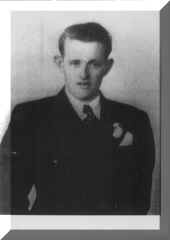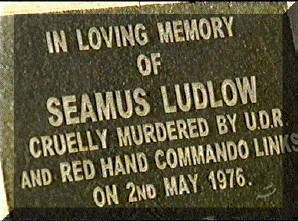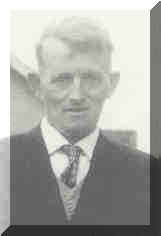


The Murder of Seamus Ludlow in County Louth, May 1976. Towards a public inquiry?
  
The Murder of Seamus Ludlow in County Louth, May 1976. Towards a public inquiry? |
|
The Barron Report is Published (Details from the Conclusions of the Barron Report are printed here in italics.)
At last the private Barron Inquiry Report has been puiblished, more than twelve months after it was received by the Dublin government. The Report covers a number of related matters, which can be summarised as follows:
By all accounts the 100-page Report is complete, there being no deletions or redactions. It has never been the Ludlow family policy to publicly name the chief suspects for the murder of Seamus Ludlow, even though their names have been known to the family for several years. They are named here now only because Mr Justice Barron has seen fit to publish them in his Report.
Earlier in the day, the Ludlow family were not at all happy with the way they were being treated by the government and the oireachtas committee regarding the timing and the important detail of invitation or non-invitation to the event. As of Wednesday, evening (2 November) the family were being led to believe that the Barron Report would not after all be published until Friday morning. Then, late Wednesday Jimmy Sharkey was informed by a journalist the the Report would indeed be published on Thursday. No formal notification was forthcoming from the government or from the oireachtas committee. This apparent snub angered the Ludlow family! In the absence of such an official invitation it was decided that the Ludlow family would not be going to Dublin. The Ludlow family would not allow themselves to face press queries about a Report they had not seen! Jimmy Sharkey and his uncle Kevin Ludlow spoke out against this governmental failure on local LMFM Radio, and his anger got through to the authorities in Dublin - they must have been asked to comment on their failure. Was it a breakdown of communications or was there something more sinister involved? These were the questions that came to mind. It was seen as yet further proof of the state's contempt for the Ludlow family and consistent with the contempt the Ludlow family have been facing for almost thirty years now. The government was clearly shaken by the press and family reaction to their mishandling of the Ludlow family's interests. Michael McDowell, Minister for Justice, addressed the issue with an announcement in Leinster House. He said that copies of the Report would be rushed up to Dundalk for the family before 3.00pm. He regretted that the family had not been kept informed.
It was then decided that Ludlow family members would go to Dublin. The family was represented by Kevin Ludlow (brother of the late Seamus Ludlow), and nephews Jimmy, Michael and Nicholas Sharkey, and Michael Donegan. These relatives of Seamus Ludlow were really looking forward to getting the Barron Report. Imagine their dismay when, while still travelling to Dublin, they received a phone-call from solicitor James MacGuill, informing them that there may be no publication of the Report that day after all, it could be postponed until Friday. This made the relatives of Seamus Ludlow really angry, not knowing what games were being played in Dublin. They were determined to go on to Dublin and raise pure hell until they got the Barron Report, or at least a satisfactory explanation for the latest setback. On arriving in Dublin they found that the media people waiting at the hotel, were just as puzzled and angry as they were. Also present was Margaret Urwin, Secretary of Justice For the Forgotten, representing victims and bereaved of the Dublin and Monaghan bombings of 1974. It was nearly two hours later before confirmation came through that the oireachtas committee would be publishing the Barron Report at 5.00pm. The Ludlow family and their solicitor would receive copies of the Report at 4.00pm so that they could read through it before it was published under parliamentary privilege. The family are understandably angry at the fact that the information concerning suspects received by Gardai in 1979 was not made known to them until the Sunday Tribune published the articles on the matter in 1998. However, it is clear that none of the local officers (with the exception of Supt Courtney, D/Sgt Corrigan and the senior officers to whom they reported) were aware of this information, at the time or subsequently. The failure of the investigating officers to inform the family is rooted in the far more serious failure to follow up the information by having the suspects questioned. From the Barron Report (Conclusions - page 86) The published 100-page Barron Report names all of the loyalist suspects and Judge Barron is highly critical of the Gardai for their failure to go after the suspects after 1979. Though it names the four suspects, the Barron Report has not been able to clearly establish who killed Seamus Ludlow, but Justice Barron did say that the Dundalk forestry worker's death was a random sectarian killing of an innocent Catholic by loyalist extremists. Mr Justice Barron says the murder of Seamus Ludlow was never properly investigated. "From the evidence available to it, the Inquiry believes that the only credible explanation for the failure to pursue these suspects is that a direction was given which led the investigating officer, D/Supt Dan Murphy to abandon plans to have the suspects interviewed outside the jurisdiction. "As to why such a direction mifght have been issued, only one credible explanation has been offered - that it was done in order to avoid a siuation where gardai might feel obliged to reciprocate by allowing RUC officers to attend interviews of suspects in the State." From the Barron Report (Conclusions: page 83) Most damning of all he alleges (above) gardai were prevented from questioning the four loyalist suspects in the North because of fears that the RUC might have demanded reciprocal rights in the Republic. Political considerations were allowed to dictate the failure of the murder investigations. Mr Justice Barron reports that files are missing from Gardai Headquarters and the Department of Justice. He points the finger of blame for the failure to prosecute at Laurence Wren, a former Assistant Garda Commissioner.
At the time of Seamus Ludlow's killing in 1976 and until 1979, Deputy Commissioner Wren was in charge of the C3 Security & Intelligence section of the gardaí. In a letter sent three weeks before publication, Mr Wren warned Mr Justice Barron that he had no intention of accepting the conclusions about his role that appear in the published Report. He wrote: "If the report is eventually published as it now stands, I will be compelled to take corrective action to clear my name." In an interview broadcast on RTÉ Radio, Mr Wren said he had never heard of the four suspects in the case being named before he went before Mr Justice Henry Barron for his report. According to the Barron Report, Mr Wren was likely not to have pursued the men because the RUC might demand reciprocal rights in the Republic. But speaking on 4 November 2005, Mr Wren said that it was a well-established policy that in political cases police did not cross the border in either direction. In the Barron report, the former Garda Commissioner, Pat Byrne, acknowledged that garda management was 'somewhat remiss' in doing its job. He said the failure to pursue the four men lay with all senior management. However, Mr Wren said the matter had not been his direct concern and therefore he did not consider himself to have had a part in this failure. It appears that Mr Wren is expected to carry the can for what was undoubtedly a collective decision which may well have been authorised by others above him in the gardaí and the Department of Justice. These faceless others hope to avoid being exposed for their role in this scandalous injustice against the late Seamus Ludlow and his family.
In the end, the fact that the inquest proceeded reflects a belief that, as the cause of death was undisputed; the inquest procedure was a formality. While this was technically true, the decision to proceed in the absence of family members caused them unnecessary hurt and annoyance, at a time of extraordinary sadness and difficulty in their lives. From the Barron Report (Conclusions - page 86) Mr Justice Barron did not find evidence of collusion, but that is hardly surprising since the British authorities in the North gave him practically no cooperation, and many files in Dublin are missing, incomplete or were never maintained. He was not allowed to find the evidence of collusion. All the more reason in the Ludlow family's view, for a public inquiry. Sometime after the Barron Report's publication, and many press, TV and Radio interviews the Ludlow family group went to the RTE studios where Jimmy Sharkey and James MacGuill, (Ludlow family solicitor) and Paul O'Connor (of the Pat Finucane Centre, Derry) were interviewed on air on the Prime Time programme. In all of these interviews - outside Leinster House, at Buswell's Hotel, or at RTE - the Ludlow family maintained that the Barron Report cries out for a fully independent public inquiry as the only way to get to all the facts of the case and to finally secure justice for the late Seamus Ludlow TDs involved in next year's sub-committee investigation, planned to begin in January, warned that senior Garda officers of that time and today would face "very tough questions". Fianna Fáil TD Sean Ardagh, chairman of the committee and the newly established sub-committee, refused to comment on the Barron Report's content or pre-empt the findings of the sub-committee. Mr Ardagh said: "Committee members only received this report at 11.30am today and have not had a chance to consider it fully." Mr Justice Barron said his job was made more difficult as documents were lost, destroyed or misplaced and key witnesses were ill, dead or unable to remember important events. Garda Commissioner Noel Conroy accepted that there "were issues" in the original investigation. "In recent years, An Garda Síochána has taken whatever actions were available to right the situation and in this regard co-operated fully with the Barron and other inquiries and will continue to do so," he said. On 5 November 2005, in a Belfast Telegraph exclusive report, Michael McHugh, spoke to Paul Hosking, one of the four loyalist suspects named by Mr Justice Henry Barron in his private inquiry report that was published under parliamentary privilege by an oireachtas committee on Thursday. Mr Hosking admits to being present when Seamus Ludlow was murdered, but he maintains his innocence of the crime. In an extraordinary statement Mr Hosking: said he was tired of having the finger pointed at him and added that he may make a submission to the Irish Justice Committee, which will consider the report in January. "This has been going on for years and I am fed up with it," he said. "I feel like I am the victim, it is awful for my family and they have gone through hell." While the Ludlow family is sorry to hear that Mr Hosking's family has suffered, he should be reminded that the victims here are the murdered Seamus Ludlow, the innocent man he and his companions left lying in a County Louth lane, and his family who have lived through almost thirty years of loss and pain, aggravated by lies and smears which helped keep him and his three Red Hand Commando/UDR companions free from justice. To read the article go here >>> Writing in the Irish Independent, on the same day, Maurice Hayes, commenting on the publication of the Barron Report, concludes with the suggestion: Maybe the time has come to draw a line under the past to agree to a closure of the books and to move on from there. While kind advice is always welcome, Mr Hayes should know that the Ludlow family takes advice from their legal representative and their friends, and not from columnists in the Irish Independent who know nothing of the loss this family has suffered. See also: I Top I See press release from Margaret Urwin, Secretary of Justice for the Forgotten. See also, the following press coverage of yesterday's publication of the private Barron Report: ireland.com, 3 November 2005: Ludlow murder was 'random sectarian killing' - Barron UTV news online, 3 November 2005: 'Barron report to be published' See also, the following press coverage of yesterday's publication of the private Barron Report: The Irish Independent, 4 November 2005: Ludlow family insists public inquiry is crucial to getting justice for their father BBC News online: 4 November 2005: Call for public inquiry into 1976 murder RTE News online, 4 November 2005: Wren rejects Barron report finding The Irish Times, 4 November 2005: Ludlow report criticises Garda investigation The Belfast Telegraph, 4 November 2005 Relatives of man killed by loyalists urge police action probe The Irish Examiner - Editorial, 4 November 2005: Family needs a full-scale inquiry I Top I
SUPPORT THE SEAMUS LUDLOW APPEAL FUND Bank of Ireland 78 Clanbrassil Street Dundalk County Louth IrelandAccount No. 70037984 Thank You.
This page was last
updated on 05/01/06
.
I Home
I I Top I I First
Ludlow Site I I Questions
I I Chronology
I I Brief
Review I I I Profile
I I BIRW Report
I I BIRW
Update Message I I Photographs
I I Hamilton
Inquiry I I Latest
Reports I I Ludlow
family letter to the RUC I I Contributors
I I Linda
Porra's Editorial I I Jim
J. Kane's Letter to the Northern Ireland Human Rights Commission I Jim
J. Kane's Letter to the RUC I I Press
Release I I Ludlow
Family Letter to Bertie Ahern I I Ed
Moloney Interviewed I I 25th
Anniversary Commemoration: I 1
I 2
I 3
I 4
I
The
Ludlow family supports the campaign by the Rooney and Watters families of
Dundalk for an inquiry into the murderous Dundalk Bombing of 19 December 1975
which resulted in the sectarian murder of Jack Rooney and Hugh Watters. Further
information can be accessed at their campaign
website.
Visitors
are welcome to leave messages on our
Click
here to Bookmark our Site! Click
here to Bookmark our Site! Print
this page. Make
us your homepage! Internet Explorer Only.
Copyright
© 2005 the Ludlow family. All rights reserved. |